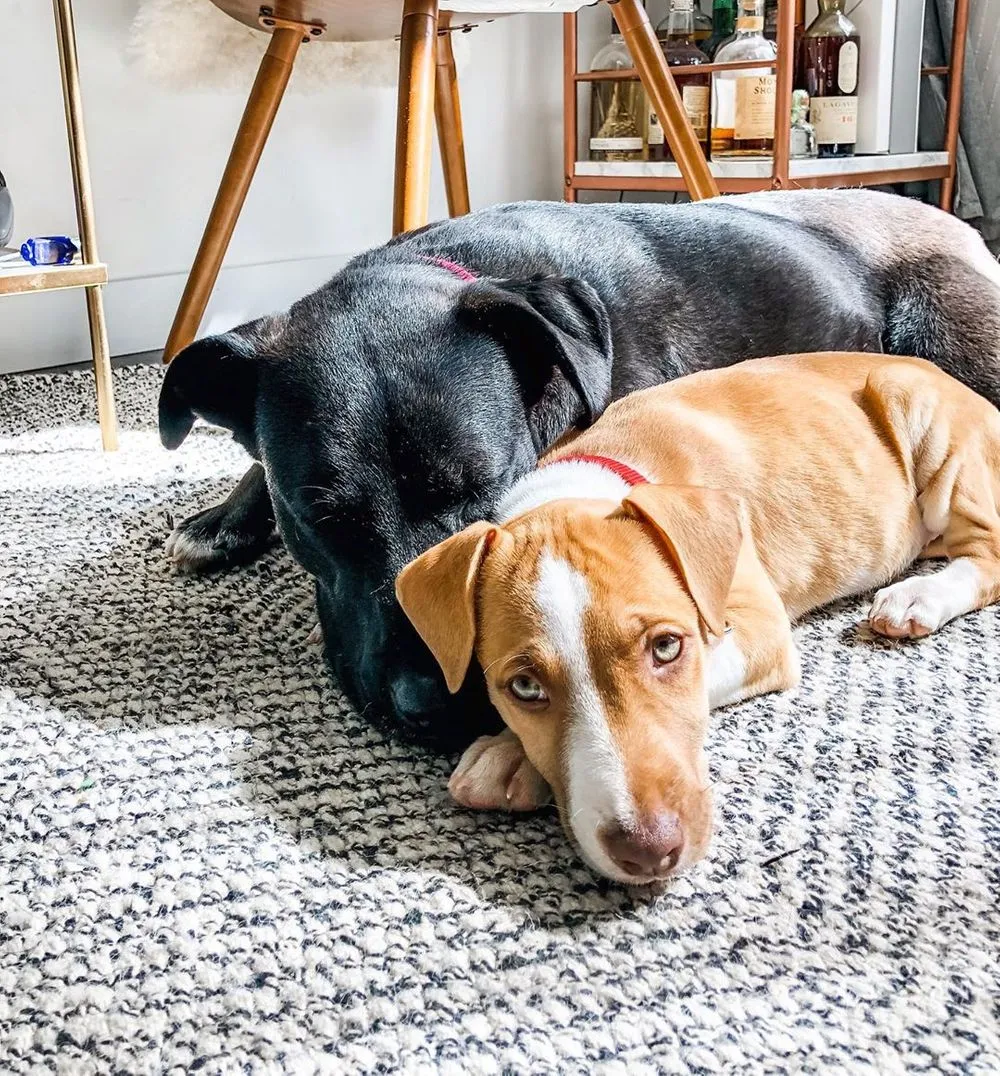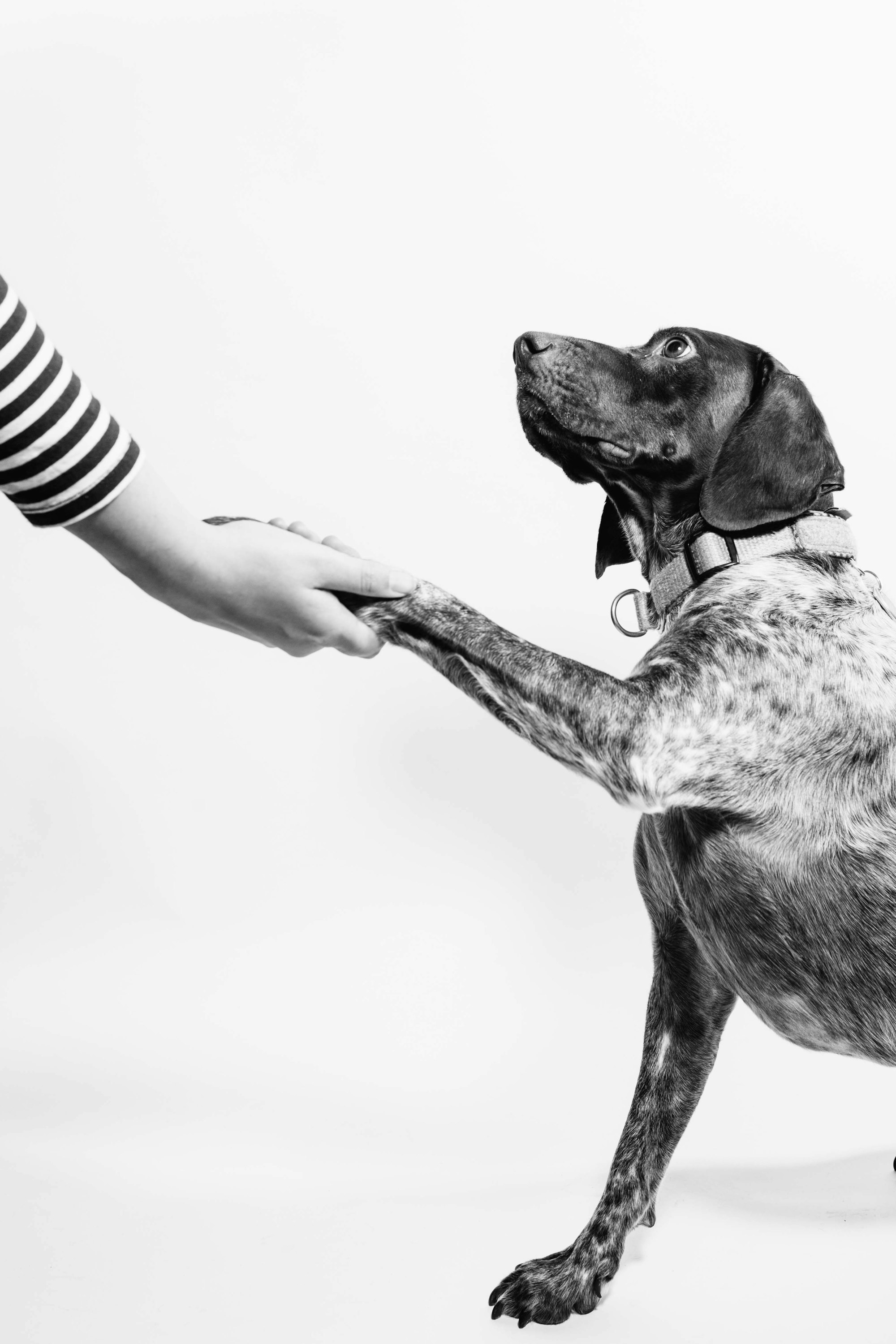Many dog owners have experienced the frustration of their furry friend constantly chewing on their paws. While it may seem like a harmless habit, excessive paw chewing can lead to discomfort, injury, and infection. So, why do dogs chew their paws? There are several possible reasons, and understanding them can help owners address the behavior and keep their pets healthy.
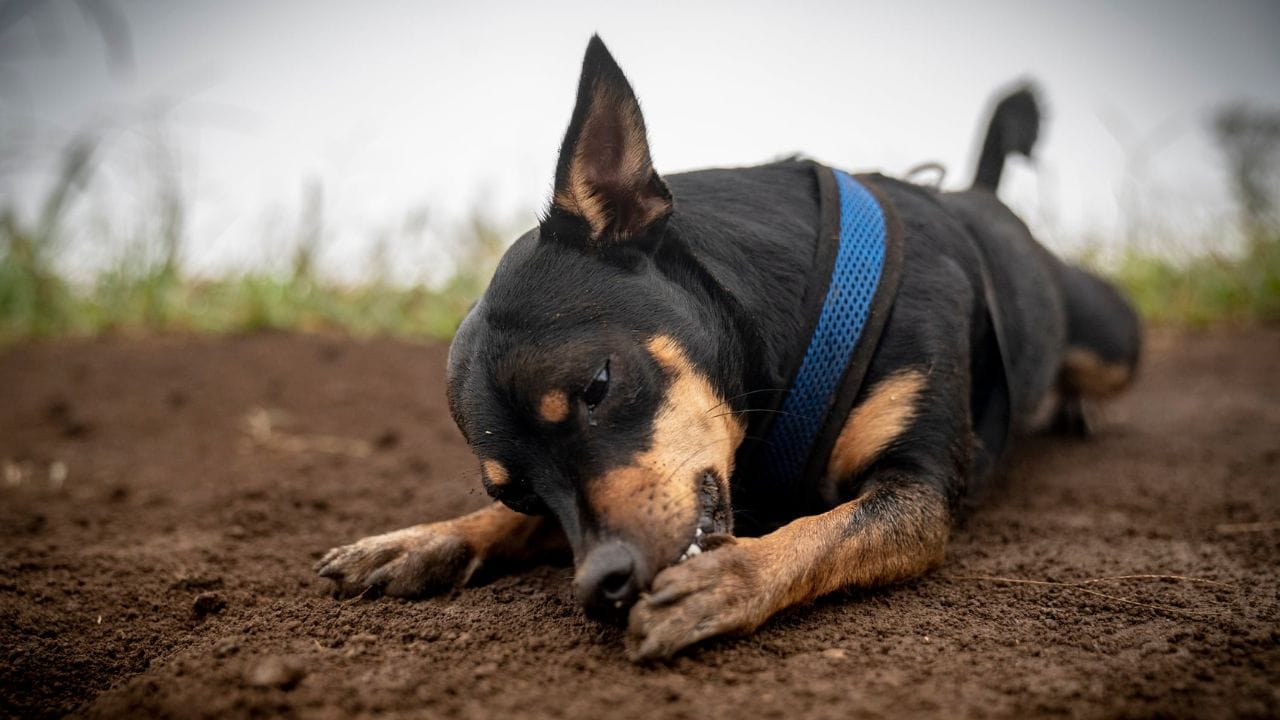
One common reason for paw chewing is allergies. Dogs can be allergic to a variety of things, including food, pollen, and dust mites. When they come into contact with an allergen, their skin can become itchy and irritated, leading to excessive licking and chewing of the paws. In some cases, dogs may also develop hot spots, which are painful and inflamed areas of skin that require veterinary treatment.
Understanding Paw Chewing
When a dog chews its paws excessively, it can be a sign of an underlying issue. Understanding the reasons behind paw chewing can help pet owners identify and address the problem.
Common Causes of Paw Chewing
There are several reasons why dogs chew their paws, including:
- Itching: Dogs may chew their paws to relieve itching caused by allergies, fleas, or other irritants.
- Redness and Swelling: Paw chewing can also be a sign of inflammation or infection, which can cause redness and swelling in the paws.
- Boredom or Anxiety: Some dogs may chew their paws out of boredom or anxiety, especially if they are left alone for long periods of time.
- Pain or Injury: In some cases, paw chewing can be a sign of pain or injury in the paw or leg.

Recognizing Symptoms of Paw Issues
It is important for pet owners to recognize the symptoms of paw issues to determine if paw chewing is a sign of an underlying problem. Some common symptoms to look out for include:
- Limping or Favoring One Paw: If a dog is limping or favoring one paw, it could be a sign of pain or injury.
- Redness or Swelling: Redness or swelling in the paw can be a sign of inflammation or infection.
- Excessive Licking or Chewing: If a dog is constantly licking or chewing its paws, it could be a sign of itching, boredom, anxiety, or pain.
If a pet owner suspects that their dog's paw chewing is a sign of an underlying issue, they should consult with a veterinarian to determine the cause and appropriate treatment.
Medical Reasons Behind Paw Chewing
Dogs may chew their paws for a variety of reasons, including medical issues. In some cases, paw chewing may be a sign of an underlying health problem that requires veterinary attention. The following are some of the medical reasons behind paw chewing in dogs.
Infections and Infestations
Infections and infestations can cause dogs to chew their paws. Bacterial infections, fungal infections, and mites are some of the most common causes of paw infections. These infections can cause irritation and itching, leading to paw chewing. Fleas and ticks can also cause paw irritation and itching, leading to excessive paw licking and chewing.
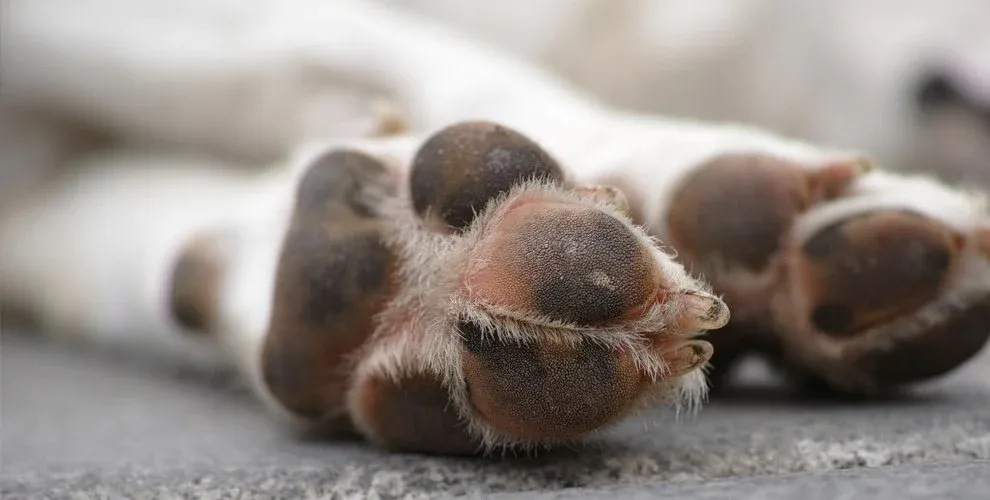
Allergies and Skin Conditions
Allergies and skin conditions can also cause paw chewing in dogs. Dogs with allergies may develop allergic reactions to food, pollen, dust, and other environmental allergens. These allergic reactions can cause skin irritation and itching, leading to paw chewing. Dermatitis, a skin condition that causes inflammation and itching, can also cause paw chewing in dogs.
Injuries and Pain
Injuries and pain can cause dogs to chew their paws. Dogs with injuries to their paws may lick and chew the affected area as a way to relieve pain and discomfort. Arthritis and pododermatitis, conditions that cause inflammation and pain in the joints and paws, can also cause paw chewing in dogs.
If your dog is chewing their paws excessively, it is important to take them to the vet. Your vet can examine your dog and determine the underlying cause of their paw chewing. Treatment may include medication, topical ointments, or changes in diet or environment. With proper treatment, most dogs can overcome paw chewing and return to a healthy, happy life.
Behavioral and Psychological Factors
Dogs may chew their paws due to a variety of behavioral and psychological factors. These factors can range from anxiety and stress to boredom and lack of stimulation. Understanding these factors can help pet owners to address the root cause of the behavior and provide appropriate solutions.
Anxiety and Stress-Related Chewing
Anxiety and stress-related chewing is a common reason why dogs chew their paws. Dogs may experience anxiety and stress due to a variety of factors such as separation anxiety, loud noises, changes in routine, or fear of certain situations. Chewing can be a way for dogs to self-soothe and cope with their anxiety.
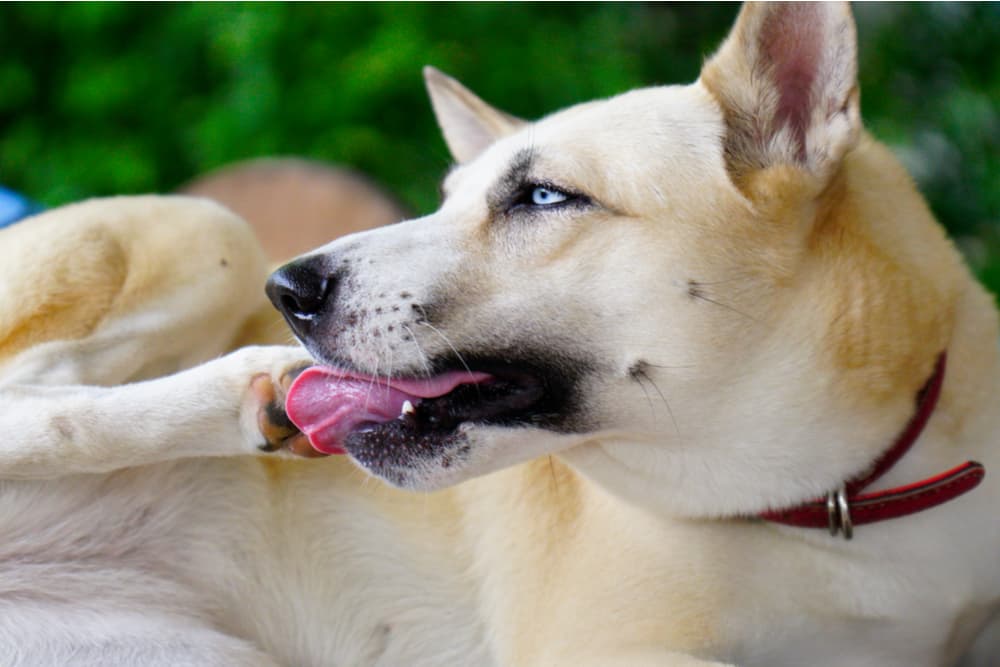
To address anxiety and stress-related chewing, pet owners can provide their dogs with mental stimulation and opportunities to relax. This can include providing toys, puzzles, and interactive games that engage their dog's mind and keep them occupied. Additionally, pet owners can create a calm and safe environment for their dogs by providing a comfortable bed, soothing music, and a regular routine.
Boredom and Lack of Stimulation
Dogs that are bored or lack stimulation may also chew their paws. This behavior can be a sign that a dog is not getting enough mental or physical exercise. Dogs that are left alone for long periods of time or not given enough attention may turn to chewing as a way to relieve boredom.
To address boredom and lack of stimulation, pet owners can provide their dogs with plenty of exercise and playtime. This can include taking their dogs for walks, runs, or hikes, playing fetch or tug-of-war, or engaging in other activities that their dog enjoys. Additionally, pet owners can provide their dogs with toys and puzzles that challenge their minds and keep them entertained.
By understanding the behavioral and psychological factors that can lead to paw chewing, pet owners can take steps to address the behavior and provide their dogs with the care and attention they need.
Prevention and Treatment
Home Care Strategies
There are several home care strategies that dog owners can implement to prevent and treat paw chewing. Firstly, it is important to keep your dog's paws clean and dry. This can be done by wiping their paws with a damp cloth after walks or playtime. Secondly, ensure that your dog has a healthy and balanced diet, as poor nutrition can lead to skin irritation and allergies. Additionally, providing your dog with plenty of exercise and mental stimulation can help reduce stress and anxiety, which are common causes of paw chewing.
When to Seek Veterinary Help
If your dog's paw chewing persists despite home care strategies, it may be necessary to seek veterinary help. Your veterinarian can perform a physical examination to determine the underlying cause of the behavior. In some cases, paw chewing may be a symptom of an underlying medical condition, such as allergies or infections.
Treatment Options
Treatment options for paw chewing depend on the underlying cause of the behavior. In cases where paw chewing is caused by allergies or infections, medical treatment such as antibiotics or steroids may be necessary. Anti-anxiety medication or behavior modification techniques may be recommended in cases where paw chewing is caused by stress or anxiety. In some cases, an Elizabethan collar may be necessary to prevent further damage to the paws. It is important to work closely with your veterinarian to determine the most appropriate treatment plan for your dog.
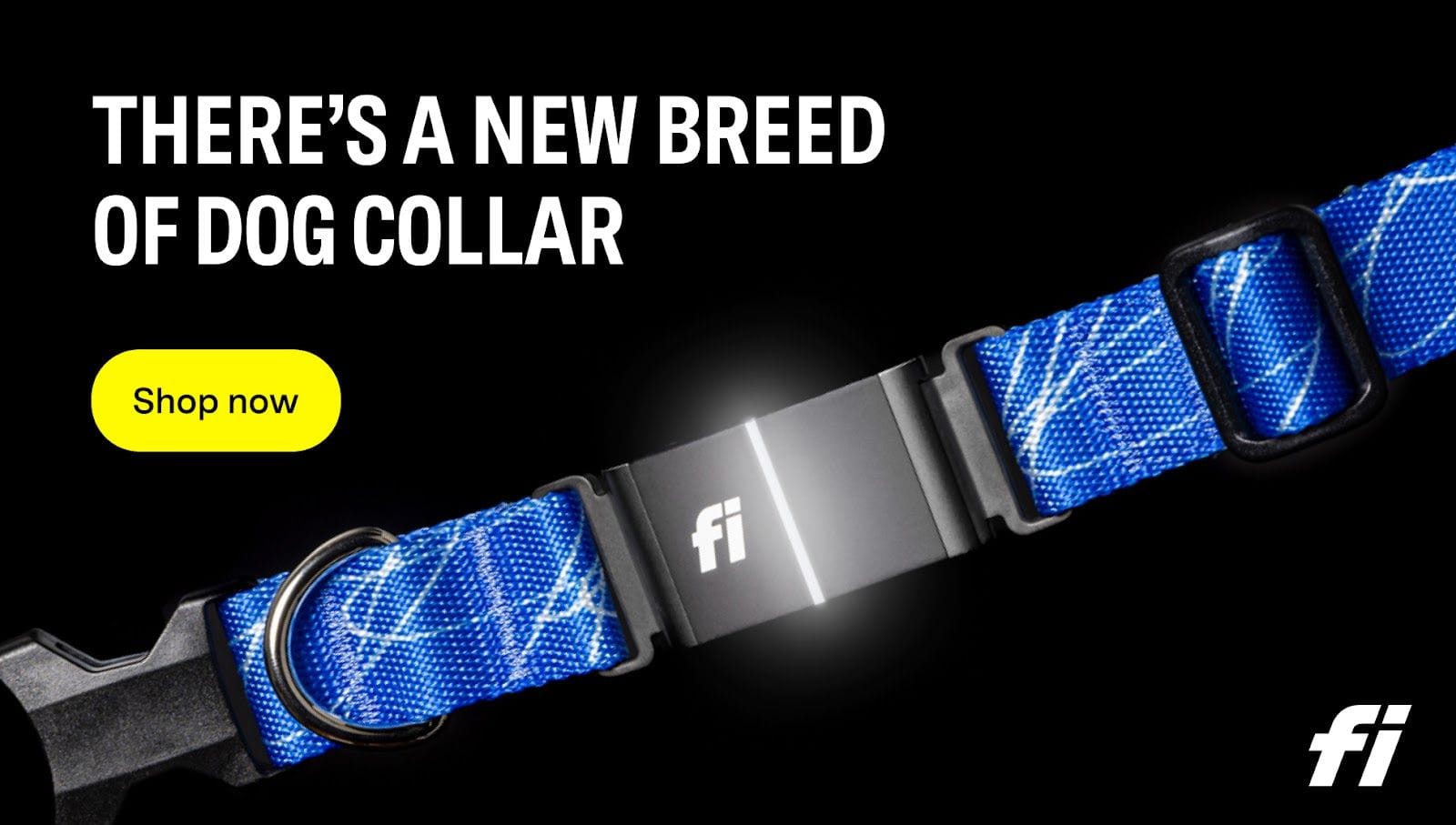
Dietary Considerations
Identifying Food Allergies
One of the reasons why dogs may chew their paws is due to food allergies. Dogs can be allergic to various types of food, including beef and chicken. Identifying the specific food that is causing the allergy can be challenging, but it is essential to address the issue.
If a dog is suspected to have a food allergy, the first step is to switch to a hypoallergenic diet. This type of diet contains unique proteins and carbohydrates that are less likely to trigger an allergic reaction. Once the dog's symptoms improve, individual ingredients can be slowly reintroduced to determine which one is causing the allergy.
Optimizing Nutrition
Providing a balanced and nutritious diet can help prevent paw chewing in dogs. A diet that is high in protein and low in carbohydrates can help support a dog's immune system and overall health.
It is also essential to ensure that the dog is receiving the necessary vitamins and minerals. Supplements such as omega-3 fatty acids and vitamin E can help reduce inflammation and promote healthy skin and coat.
In addition to a healthy diet, it is crucial to provide plenty of fresh water for the dog to drink. Dehydration can lead to dry, itchy skin, which can contribute to paw chewing.
Overall, dietary considerations play a significant role in a dog's health and well-being. Identifying food allergies and optimizing nutrition can help prevent paw chewing and promote overall health.
Environmental and Seasonal Factors
Dogs may also chew their paws due to environmental and seasonal factors. These factors can include household allergens, outdoor hazards, and changes in weather.
Household Allergens
Household allergens such as dust, mold, and pollen can cause a dog's paws to itch and become irritated. Dogs may chew on their paws as a way to relieve the itching and discomfort. In some cases, the allergens can also cause dry skin, which can further exacerbate the problem.
Outdoor Hazards
Outdoor hazards such as grass, frostbite, and hot spots can also cause a dog's paws to become irritated. Grass and other outdoor allergens can cause itching and discomfort, while frostbite and hot spots can cause pain and inflammation. Dogs may chew on their paws as a way to relieve the discomfort caused by these hazards.
Changes in weather can also play a role in a dog's paw-chewing behavior. Cold weather can cause dry skin, while hot weather can cause sweating and irritation. Dogs may chew on their paws as a way to relieve the discomfort caused by these weather-related issues.
In conclusion, environmental and seasonal factors can contribute to a dog's paw-chewing behavior. Pet owners should be aware of these factors and take steps to minimize their impact, such as keeping the house clean and avoiding outdoor hazards when possible.
Conclusion
In conclusion, understanding the myriad causes behind dogs' paw-chewing behavior is crucial for pet owners. This behavior can stem from medical issues like allergies, infections, and injuries, or from psychological factors such as anxiety, boredom, or lack of stimulation. Addressing the root cause, whether it requires medical treatment, dietary adjustments, environmental changes, or increased mental and physical engagement, is essential. By recognizing the symptoms and consulting with a veterinarian when necessary, pet owners can take proactive steps to alleviate their dogs' discomfort and prevent the potential complications of excessive paw chewing, ensuring the health and well-being of their furry companions.
FAQs
- Why do dogs chew on their paws?
- Dogs may chew on their paws for various reasons, including medical issues like allergies, infections, and injuries, as well as psychological factors such as anxiety, boredom, or lack of stimulation.
- How can I tell if my dog's paw chewing is a problem?
- If your dog's paw chewing is excessive, leading to redness, swelling, or injury, or if it's accompanied by symptoms like limping, it may indicate an underlying issue that requires attention.
- What should I do if my dog won't stop chewing their paws?
- If home care strategies don't alleviate the problem, consult a veterinarian to identify the underlying cause and discuss appropriate treatment options, which may include medication, dietary changes, or behavioral therapy.
- Can dietary changes help with my dog's paw chewing?
- Yes, if the paw chewing is related to food allergies, switching to a hypoallergenic diet and identifying and eliminating the allergen can provide relief. Ensuring a balanced diet can also support overall skin and paw health.
- Are there any home care strategies I can try to prevent paw chewing?
- Keeping your dog's paws clean and dry, providing a balanced diet, ensuring plenty of mental and physical stimulation, and maintaining a clean environment to minimize allergens can help prevent paw chewing.
